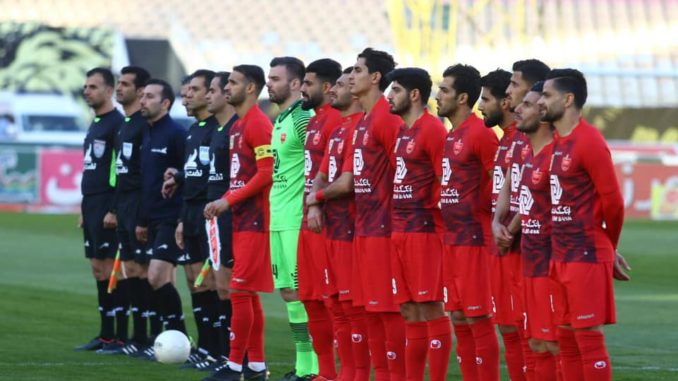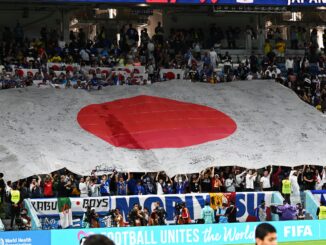
Ever since East Asia was plagued with Coronavirus, starting on 31 December in China, clubs from across Asia were monitoring the situation and its effect on their fixtures.
A month after the first case of Coronavirus was reported in China, the East Asian giants postponed the Chinese Super League football league games, effective immediately. Things were much more serious than previously thought.
The Coronavirus, also known as COVID-19, soon spread to Japan and South Korea, but when the first cases were reported in those countries in late January, within a month both had postponed their respective leagues.
As it stands, both leagues are still postponed with no set return date announced.
To put numbers into perspective, at the time of football league postponing on 25 February, Japan had 893 confirmed cases of Coronavirus and six deaths.
In South Korea, on 25 February, the total number of confirmed cases was 1000, with 11 people losing their lives.
In China, which was at the epicentre of the Coronavirus outbreak, they postponed Super league on 30 January, and at that time the total confirmed cases were 9096, with a death toll of 213.
In Vietnam, which has proven to be one of the most successful country in containing the virus, starting on 7 February, the country banned the hosting all sporting events, and thus all AFC Cup home games were switched to away games. That is despite not having any casualty and only 12 cases of confirmed cases of Coronavirus in the country at that time.
In Iran though, there is still a debate on the exact timeline and start date of the virus spreading throughout the country. But one thing is clear, Iran postponed its leagues at a much later date than other top Asian leagues and only postponed the games as of 4 March.
That is despite having 2900 confirmed cases with a death toll of 92 people.
Below is the chart showing the total number of COVID-19 death toll at the time of league cancellation in Top 4 Asian countries:

In comparing the numbers, Iran had second highest number of infected people, after China, and yet refused to shut down the league at the same time as China, or other Asian leagues.
Iran was the slowest of the three Asian countries (China, South Korea and Japan) in postponing the league.
The reason was, oddly enough, Iranian football league officials were against the cancellation of the league.
Despite players and coaches voicing serious concerns, Soheil Mehdi, head of the Iran football league, indicated, “…the league does not have plans to postpone or cancel the league.”
It appears, however, that another group applied pressure, preventing the league’s cancellation.
Pezhman Nouri, head of Malavan club said, “(The) Head of the Iranian Sport Ministry had wanted to cancel the league, but pressures from ‘higher up officials’ prevent Iran Sport Ministry to do so.”
Apart from the coaches and players’ complaints, there was an actual health threat against team players too. Back in late February, some Malavan players claimed they have been infected with COVID-19.
Also, Esteghlal threatened to not play future fixtures due to Coronavirus spreading throughout the country. It was then, that League officials postponed the league.
Why would certain groups in Iran delay league shutdown? Sepahan club President, Masoud Tabesh, speaking on state TV program Football Bartar, said, “…cancelling the league would provide an excuse for Saudi Arabia to start a warfare against Iran.”
This raises serious red flags that the reason for the slow response by Iranian football officials was for purely political reasons.
On 2 April, Persian Gulf League games will resume with business as usual. In the meantime, according to official figures, as this article is being written, Iran currently has one of the highest death tolls outside China, with 16,169 confirmed cases and 988 deaths to date. Those numbers will only continue to rise.
Iranian club coaches are not pleased; Abdolah Veysi, Paykan’s young coach, was the one breaking the news that their club staff were told that Iran Persian League games will resume as of 2 April.
Paykan’s coach also surprised the reporters with the news that the Academy coach of Paykan had been infected with Coronavirus. He insisted on the League being cancelled, instead of postponed, as the outbreak continues to spread throughout the country.
In the meantime though, there are even arrests being made by Iran Intelligence Organisation against anyone who criticizes the mismanagement of Iran’s Coronavirus outbreak.
One of those arrested is Damash Gilan captain, Mohamad Mokhtari, who was arrested on 12 March for his criticism on Instagram of the Iranian Government’s response to the growing COVID-19 outbreak, and the severe situation and growing death toll in Gilan Province.
Beyond Iran’s borders, the Coronavirus has affected all major football competitions and will do so for the next four to six months at least.
The World Cup qualifiers in Asia have also been affected, while AFC Champions League and AFC Cup matches are also postponed.
The question to ask is, was the delay in postponing the League by Iranian football officials worth the political gain? Who, among league officials, would take responsibility if Academy coach of Paykan does not recover from COVID-19?
While all the headline games, such as the AFC Champions League, all the way to through World Cup qualifiers, are postponed until later in the year, is it worth it for Iran to resume the league again in just a few weeks?
Photo: Facebook/FC Persepolis
Listen as Scott & Paul discuss the impact of COVID-19 on Asian football on Episode 50 of The Asian Game podcast.




